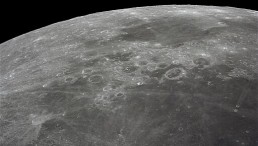A recent study published in Nature Geoscience reveals that China is exporting its air pollution to the West Coast of America.
Progress dynamic unhealthy gas within the western U.S. has been mostly undone by pollution wafting across the Pacific from China, according to the study titled "Rapid Increases In Tropospheric Ozone Production And Export From China".
Scientists have long suspected this would possibly justify why gas levels on the United States' geographical area remained constant despite a big native reduction in ozone-forming chemicals.
"The dominant westerly winds blew this air pollution straight across to the United States," explained Lead researcher Willem Verstraeten of the Royal Netherlands Meteorological Institute cited In an article published by straitstimes.com.
The pollution may cause health problems, damages crops, and is an important source of greenhouse gases.
The study added that the rapid population growth and industrialization have driven substantial increases in Asian ozone precursor emissions over the past decade, with highly uncertain impacts on regional and global tropospheric ozone levels.
The research was interpreted through Aura satellite measurements of tropospheric concentrations of ozone and its precursor NO2, along with its largest natural source, stratospheric ozone, using the TM5 global chemistry-transport model.
"We show that tropospheric ozone concentrations over China have increased by about 7% between 2005 and 2010 in response to two factors: a rise in Chinese emissions by about 21% and increased downward transport of stratospheric ozone," study cited.
Researchers also found out that transport from China of ozone and its precursors has offset about 43% of the 0.42 DU reduction in free-tropospheric ozone over the western United States that was expected between 2005 and 2010 as a result of emissions reductions associated with federal, state and local air quality policies.
"We conclude that global efforts may be required to address regional air quality and climate change," researchers said.













![Earth's Quasi-Moon Kamo‘oalewa Could Originate From Lunar Surface Not Asteroid Belt [Study]](https://1721181113.rsc.cdn77.org/data/thumbs/full/53275/258/146/50/40/earths-quasi-moon-kamo-oalewa-could-originate-from-lunar-surface-not-asteroid-belt-study.png)
